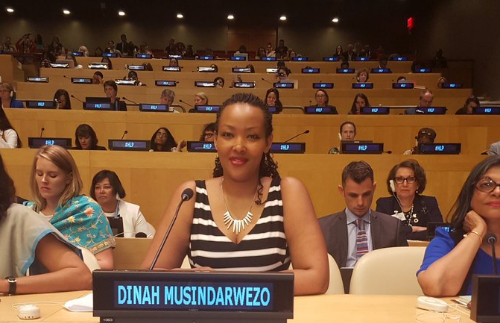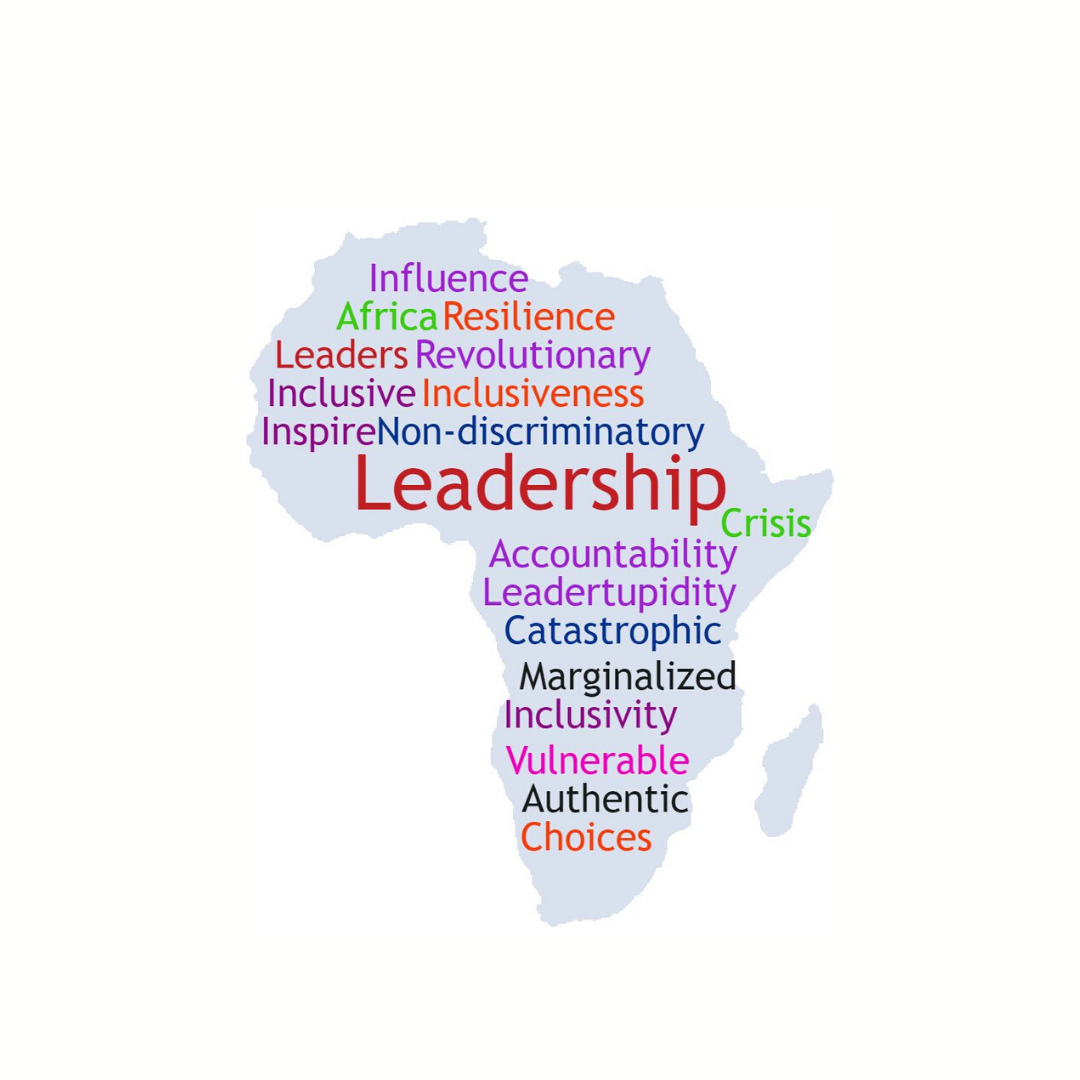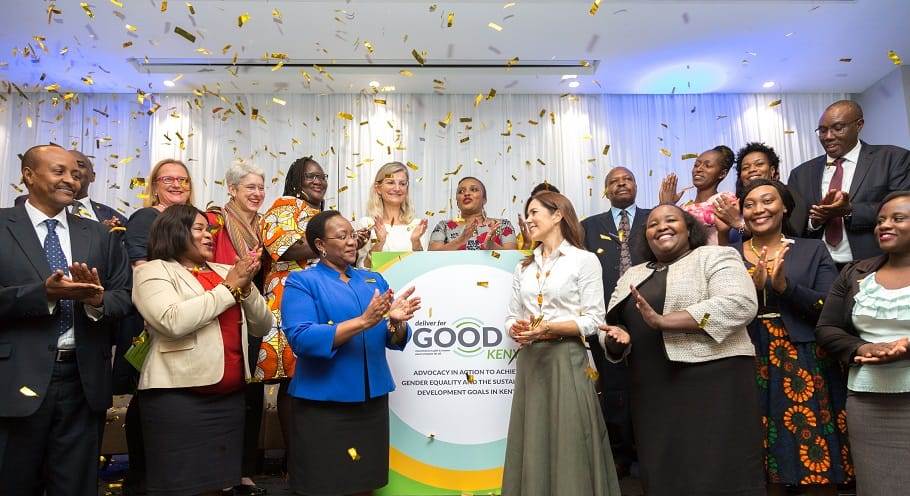
We Must Recognize the Care Economy and Redistribute Care Work This is #TheAfricaWeWant!
Research shows that women do over 75 per cent of all unpaid care work, with that proportion rising to even higher levels in some countries.[1] The socially defined norms entrenched in patriarchy assign this type of caring work as ‘women’s work’.
Unpaid care work takes place both in the household and in the wider community; it includes domestic work such as cooking and food preparation, cleaning, washing clothes, water and fuel collection, and direct care of people including children, older persons, persons with disabilities and able-bodied adults.
The Executive Director for the African Women’s Development & Communications Network (FEMNET) Dinah Musindarwezo while attending the UN-Women High Level Panel on Women’s Economic Empowerment held in New York during the 71 UN General Assembly, September, 2016, made a resounding presentation highlighting the reality of the gaps in unpaid care work. The panel consisting of representatives of government, business, and civil society was chaired by the outgoing UN Secretary General Ban Ki Moon. It explored the 2030 Agenda for Sustainable Development, to improve economic outcomes for women, and promote women’s leadership in driving sustainable, inclusive, gender-responsive and environmentally sensitive economic development.
Contributing her perspectives to the released Report of the UN Secretary General’s High Level Panel on Women’s Economic Empowerment, Ms Dinah Musindarwezo, joined other women’s rights advocates in calling for the recognition and valuing of all unpaid care work disproportionately done by women and girls especially those that are underprivileged and most marginalized.
This ‘call-to-action’ report sheds light on the centrality of unpaid work and care, which is one of the most pervasive and significant barriers to women’s economic empowerment noting that “the gender differences both in unpaid work and in all types of paid work are large and persistent, reflecting constraints on women’s economic opportunities and outcomes”.
Consisting for the most part of cleaning, cooking, and caring for children, the elderly or the sick, this work is carried out mainly by girls and women. Emphasizing the importance of care work, Dinah Musindarwezo argued that this work sustains countries’ economies as it maintains the current work force and nurtures the future work force. She added that this work is neither recognized nor given any value and as a result, it restricts women’s ability to earn income from paid work, channels women into low paid work, undermines girls’ education and thus their future earning potential, diminishes women’s health as they cannot enjoy leisure time and prevents women from participating fully in politics and decision making.
Ms Dinah Musindarwezo’s intervention at this High level event presented both the consequences and possible solutions[2] towards addressing unpaid care work as follows:-
The considerable time and opportunity-costs involved in unpaid care work have the following consequences on the care-givers majority of whom are women:-
- restrict women’s ability to earn income from paid work,
- channels women into low-paid work with poor conditions,
- undermines girls and women’s education and thus their future earning potential,
- diminishes women’s health,
- reduces the time available for social activity and to have leisure time
- prevents their full and meaningful participation in politics and economic decision-making.
To rectify this:-
- Women and men should share unpaid care work more evenly.
- Governments should invest in high-quality public services essential to free up women’s time while also ensuring that quality care services are universally available.
- Carers should be actively included in decisions around care provision.
- Employers should be obliged by law to provide paid maternity and parental leave and flexible work proportionate with caring responsibilities.[3]
- Recognise, measure and value the amount of unpaid care work that is carried out by women. Time-use surveys have proved a valuable tool; donors and governments should look to fund such surveys in every country to count the full extent of unpaid care work
Dr. Mary Otieno, a lecturer and supervisor of Educational Planning and Policy Studies at the Kenyatta University and a member of FEMNET shares her experiences in a compelling opinion piece, “growing up as a ‘victim’ of unpaid care”. She was fortunate to escape its worst consequences and now uses her influence as an educator to speak against its negative effects on girls´ schooling.
To address this issue of unpaid care work and achieve wider change in African society, a comprehensive approach is needed. First is the recognition of the vast amount of unpaid care work being performed today and its central role in society, next is the reduction in the time and drudgery involved in providing care and finally, is the redistribution of responsibility for this care from households to the state through the provision of public services.
The inequalities of unpaid care work may be a new concept to internalize for many societies but a key fact is that it continues to be alive within patriarchal communities and thus must be addressed. Governments and policy makers must make this a priority if they truly care about bridging the existing inequality gender gaps.
[1] ODI (2016) Women’s work: Mothers, children and the global childcare crisis at http://www.odi.org/sites/odi.org.uk/files/odi-assets/publications-opinion-files/10333.pdf 1.5.16
[2]Woodroffe, Jessica and Capraro, Chiara. (May 2016) Breaking down the barriers: macroeconomic policies that promote women’s economic empowerment in the Gender & Development Network (GADN) Briefing – accessible online https://femnet.org/wp-content/uploads/2016/06/Breaking-down-the-barriers-macroeconomic-policies-that-promote-WEE-1.pdf
[3] Woodroffe, Jessica and Donald, Kate. (July 2014) Unpaid Care Work in the Gender & Development Network (GADN) Briefings – accessible online https://gad-network.squarespace.com/s/GADN-Unpaid-Care-briefing.pdf
Written by Rachel Kagoiya, Information Manager, FEMNET
Related Tags
Related Posts
#COVID-19: Of Leadership vs ‘Leadertupidity’
The COVID-19 pandemic is a menace posing a threat to everyone, in every society. As of 2nd April
Learn MoreFEMNET 2018 Highlights
Dear Members, Partners & Friends, Happy & Spectacular 2019! I’m excited and truly grateful for your unwavering support
Learn More







